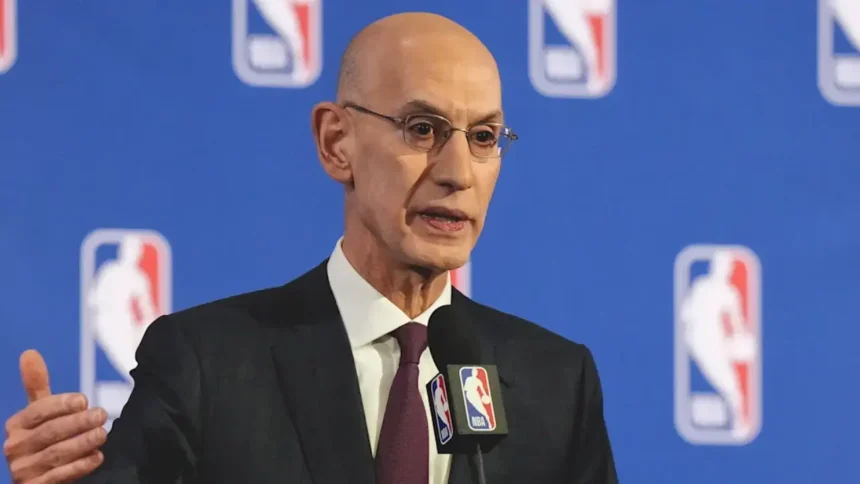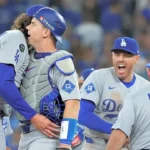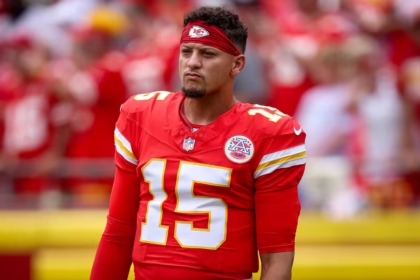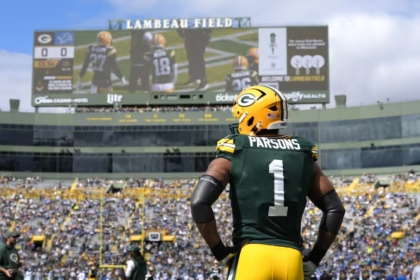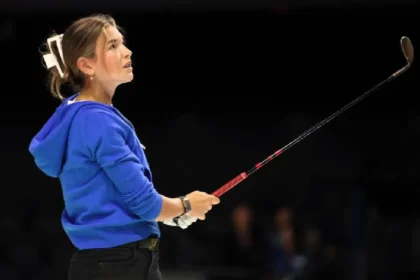In one of the most serious integrity crises in recent memory, the NBA finds itself engulfed in a sweeping gambling scandal — and a leading sports analyst is calling it outright “insanity.” Two of the league’s most visible figures, along with more than 30 others, have been indicted in federal investigations for alleged involvement in schemes that manipulated betting outcomes and used insider information.
The allegations are staggering: a well-known player stands accused of advising associates on prop-bets in games he participated in, while a veteran coach and former player are alleged to have been involved in rigged poker games backed by organized crime. The scale and sophistication of the operations have shocked fans, sponsors and league officials alike.
One pundit, speaking on a major broadcast network, described the entire situation in blunt terms: the fact that well-paid professionals — players and coaches earning millions — would risk their careers, reputations and freedom for the possibility of illicit betting gains is, in his view, beyond comprehension. “It’s pure insanity,” he said. “You don’t fix basketball games when you’re making tens of millions. It makes no sense.”
Much of the criticism centers on the sheer audacity of the alleged misconduct. In each case, the individuals involved were in a position of trust and visibility inside the league. One accusation involves a player allegedly signaling before games that he would exit early, allowing others to bet on his lowered performance. In the poker scheme, the coach is alleged to have participated in rigged play and shared confidential team information with bettors. These are not isolated incidents of misplaced bets but calculated efforts to exploit the game’s structure.
League Commissioner Adam Silver expressed deep concern, calling the allegations “disturbing” and saying the league’s first priority must be the integrity of competition. The moment has forced the NBA to confront how legalized sports betting, its own partnerships with sportsbooks and the dark underbelly of insider manipulations have intersected in dangerous ways.
For the analyst who opened the discussion, the core issue is less about addiction or error and more about entirely avoidable poor judgment. While some commentators pointed to gambling addiction as a contributing factor, he dismissed that explanation entirely: “This isn’t about addiction,” he said. “This is about greed, stupidity and betrayal of the game.”
The ramifications for the NBA are multi-fold. Sponsors and broadcasters, already sensitive to reputational risks, are monitoring the situation closely. Fans, who expect fair competition and competition free from manipulation, may gradually lose trust in the game’s authenticity. States and regulatory bodies that legalized sports betting in large part as economic drivers now face questions about how the combination of pro sports, betting and technology has created new vulnerabilities.
Internally, the league and teams must now reassess policies around gambling education, internal controls, and monitoring of unusual betting patterns. The fact that the alleged schemes span years and involve high-level insiders suggests that the safeguards in place may not have been sufficient. Teams have already begun to publicly reaffirm their commitment to ethical behavior, but the damage to public perception could prove lasting.
For the players and coaches involved, the personal costs are severe. Suspension, termination, criminal charges and the possible loss of legacy loom large. For the league’s many legitimate players and staff, the scandal casts a shadow over their achievements and efforts. When one or more high-profile figures are implicated in betrayals of this scale, it implicates the structure, oversight and culture of the sport itself.
The analyst’s use of “insanity” is perhaps appropriate insofar as the behavior defies logic: risking a flourishing career, tens of millions in salary, endorsements and the respect of peers for a scheme that at best nets a small fraction of what legitimate performance could secure. The structures that enable such behavior — access, opportunity, weak deterrents — now stand exposed.
Going forward, the league’s ability to respond swiftly and transparently will be critical. Should additional names emerge, or evidence suggest systemic vulnerabilities, the scandal could evolve from a major story to an existential challenge for the NBA’s model of competition in the age of mass betting. For fans, the message is clear: the sport they love depends not just on spectacle and star talent but on fairness and trust.
At bottom, the sports analyst’s verdict rings true for many: this is more than just a scandal. It is an indictment of a sport that once prided itself on integrity, now grappling with forces it helped create. His words — “insanity” — capture not just the shock of the moment, but the larger crisis facing professional basketball.


